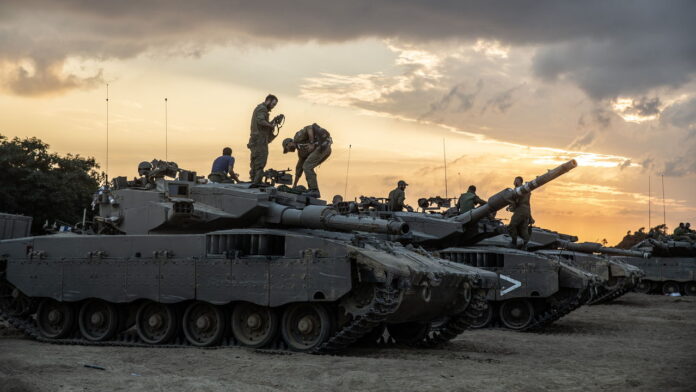
The Israeli government has begun calling up tens of thousands of military reservists as it escalates its offensive in Gaza, vowing to “intensify and expand” operations aimed at defeating Hamas and securing the release of hostages.
The Israel Defense Forces (IDF) announced over the weekend that it will begin operating in new areas of the Gaza Strip, targeting both above- and underground infrastructure.
The move comes as critics, both domestic and international, accuse Prime Minister Benjamin Netanyahu of prolonging the war without presenting a viable post-conflict plan.
“Pressure will increase,” the IDF said in a statement, citing the need to return 59 remaining hostages—24 of whom are believed to still be alive—taken during the Hamas-led attack on October 7, 2023.
However, no hostages have been released since Israel resumed full-scale operations on March 18, after a two-month ceasefire collapsed.
Tensions Mount at Home and Abroad
Back in Israel, protests swelled across cities like Tel Aviv and Haifa, with families of hostages demanding the government prioritize negotiation over military escalation.
“This is a needless war,” said one mother of a hostage still in Gaza, during a protest attended by thousands. “They are not coming back through more bombing.”
Reservists themselves are expressing exhaustion and growing disillusionment. Many have reportedly been called up for service five to six times since the war began. In recent weeks, thousands signed open letters urging the government to stop the fighting and reach a deal for the hostages’ return.
Netanyahu’s Strategy Under Fire
The renewed offensive—set for formal approval by Israel’s security cabinet—has only amplified scrutiny of Prime Minister Netanyahu’s handling of the war. Families of the hostages and opposition leaders accuse him of deliberately sabotaging peace talks for political survival. Netanyahu denies the allegations, insisting the military campaign is necessary to eliminate Hamas as a threat.
Despite these claims, the prime minister has yet to present a detailed “day-after” strategy for Gaza, raising international alarm over Israel’s long-term intentions in the region.
Meanwhile, Gaza continues to reel under catastrophic conditions. Aid agencies warn of acute shortages of food, clean water, and medical supplies. The blockade on humanitarian aid—ongoing for over two months—has led to accusations of a “starvation policy” by international observers, a claim Israel rejects.
The Hamas-run Gaza health ministry reports that at least 52,535 Palestinians have been killed since the start of the war, including 2,436 since operations resumed in March.
Regional Fallout and Widening Conflict
On Sunday, Houthi fighters in Yemen escalated the conflict further, launching a missile that landed near Israel’s Ben Gurion International Airport. In response, Israeli officials warned of retaliation. The Houthis then vowed to impose an “aerial blockade” on Israel, threatening future strikes on airports and infrastructure.
The UN has scheduled hearings this week to assess Israel’s legal responsibilities toward Palestinians, while Qatar claims only “slight progress” in renewed ceasefire negotiations.
As the Gaza war grinds on with no end in sight, questions continue to swirl: What is Israel’s endgame?


















